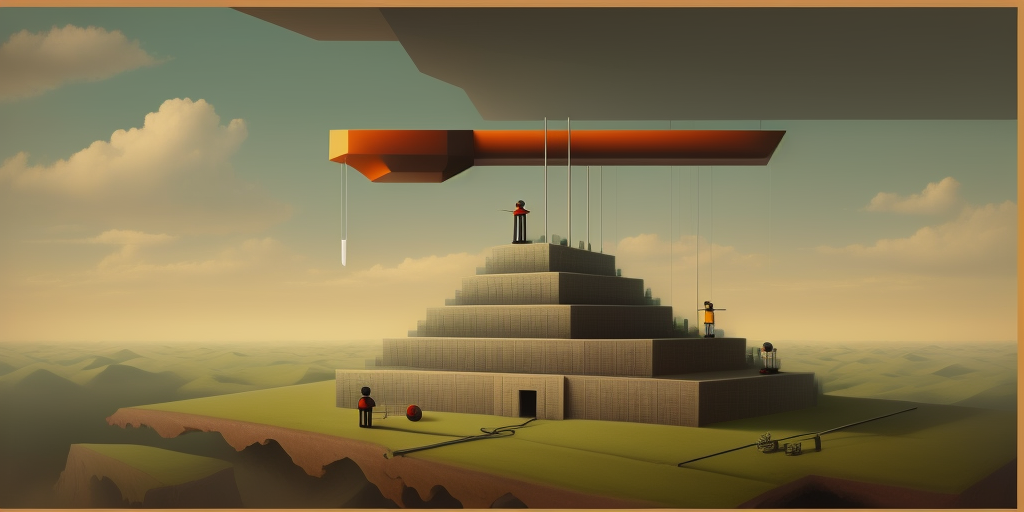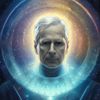Confusing Religion and Technology

"If all you have is a hammer, everything looks like a nail." – Abraham Maslow
I'm not entirely sure why, but I've been putting off responding to this. I suppose it's partly because I had such a visceral reaction to it. Maybe I wanted to write from detached criticism rather than my initial, "Oh, puh-lease!" reaction. Time to give it a shot. There's this idea that's been floated in several places, and not just the article that recently got me back on this train of thought (I'll get to it in a moment). Here's the idea: somehow, all this obsession with AI development, with technology in general, and of course, the idea that technology will somehow make our lives better and help us live longer, is, according to some people at least, just a new form of religion.
Those people will argue that the concepts we see in things likelife-extension technology (searching for a cure to aging), transhumanism, techno-optimism, the so-called "singularity", and of course, artificial intelligence, are just rehashes of old religious ideas. The argument is that there's really nothing new because, oh I suppose, God has already made all this stuff available to us in one way, shape, or form. Rather than just accept God, tech bros see it necessary to recreate what the Bible, or the Quran, Torah, or Vedas have already accepted a gazillion years ago.
But, I digress.
Hmm, sometimes I think I should have called my blog, "But, I digress." Too late.
So, how did this start? A recent article published in Vox has put forth the bold proclamation that current excitement surrounding artificial intelligence essentially amounts to “recycled religious ideas” inherited from (mostly) medieval Catholic theology. The author, Sigal Samuel, lays out what seems on the surface to be a compelling case, drawing a direct lineage between mystical medieval thinkers prophesying technology-driven salvation and today’s techno-utopians who dream of digital transcendence free from human frailties. However, upon closer scrutiny, she argues, the arguments rely on highly selective evidence and flawed logic that fail to substantiate such a tidy and reductive conclusion.
To be fair, Sigal Samuel covers a lot more ground than I'm going to address here, so feel free to tell me that I've missed this or that in my response. I don't want to bore you to death with every detail or my objections.
I started this essay (post?) with a quote from Abraham Maslow about hammers and nails. That quote, "If all you have is a hammer, everything looks like a nail.", is sometimes referred to as Maslow's Hammer. Sigal Samuel, a senior reporter at Vox, has been writing about religion for a long time and is, among other things, the former Religion Editor at The Atlantic. Her creds in this field are undeniable, but I feel as though much of her argument is viewed through that singular lens. Put another way, religion is her hammer.
The article immediately starts off on questionable footing by framing the biblical Genesis story as humanity’s disastrous plummet into sin and “fall from grace” after embracing the forbidden fruit of knowledge. This original sin narrative casts scientific curiosity and conscious awakening through reason as morally dubious forces that set human progress back rather than advancing it. The author’s clear bias in interpreting this foundational tale in such quasi-diabolical terms subtly foreshadows an overarching skepticism toward technology’s limits that permeates the full article. But last I checked, learning and free inquiry were still considered virtuous pursuits, so I’m not sure when the script got flipped exactly.
Forgive me while I digress again, but I have often personally thought that the hero and the villain in the original Genesis story are misrepresented. For instance, the serpent gives humanity access to knowledge and somehow, right from the beginning, knowledge is supposed to be a bad thing, apparently. I would argue that the serpent is humanity's hero, having freed us from the shackles of ignorance. Perhaps I should leave that as a topic for another day. For now, let's get back to that Vox article.
Throughout, the article portrays innovations by priestly medieval figures as emerging solely from theological motivations centered on restoring the godliness humanity lost after being evicted from Eden. It attributes medieval progress primarily to religious doctrine rather than acknowledging the bigger picture. Now I’m no historian, but common sense says ingenuity arises innately across cultures when resources and conditions allow, not uniquely from heavenly inspiration striking a bunch of monks. That some inventors were affiliated with the powerful Church likely says more about benefitting from generous means (money, food, and other resources) than motives. Unless we just give the Almighty full credit for inventing the wheel, metalworking, and wine too while we’re at it.

At one point, the author writes, "there's a reason why some say that the Catholic Church was the Silicon Valley of the Middle Ages". Oh, please... The article’s Eurocentric lens also conspicuously glosses over how Islamic scholars in the 8th to 13th centuries were busy preserving ancient Greek and Roman learning, which later seeded Europe’s Renaissance arguably more than Christianity did. The article ignores how scientific revolution occurred largely by courageously resisting, not cheerfully propagating, the dogmatic constraints on free inquiry imposed by religious doctrine. I hate to interrupt this nice straight line sketched from celestial visions to AI, but these glaring inconsistencies definitely disrupt the claim of direct causal descent.
I'm not going to address every one of these causal descents; there are many in the author's essay. Sufficiently weighted down with these, you might be tempted to shrug, nod, and acquiesce. But, do question these purported causal descents. For instance...
At one point, the article attempts to draw a tidy direct lineage from esoteric philosopher Pierre Teilhard de Chardin musing about technology merging humanity with the divine all the way to today’s transhumanist futurists like Ray Kurzweil predicting our consciousness will digitally transcend mortal limits. But last I checked, just because a few quasi-mystical outliers evoke digital transcendence hardly defines an era when technology otherwise advanced primarily through secular institutions building on Enlightenment rationalism, not vision quests. The article imposes determinism by seeking neat linear explanations tying abstract dots rather than wrestling with historical messy reality in all its contradictions.
It goes further astray by dubiously interpreting concepts like AI risk and regulation as directly descending from biblical End Times eschatology and divine judgement, ignoring their far clearer roots in broad modern anxieties around unfathomable technological power evident in plenty of secular sci-fi long before AI even existed. These timeless archetypes exploring existential hope and caution through allegory generally spring from humanity’s collective unconscious, not uniquely Judeo-Christian notions. But I guess that wouldn’t fit quite as neatly on the little timeline.
Particularly in the latter half, the article does argue justifiably against blind optimism that technology will arbitrarily bring utopian progress if we just charge ahead full throttle without foresight. However, it still bases this technocratic hubris in religious ideas of salvation rather than acknowledging the actual roots in Enlightenment positivist ideology and its cultish reverence of scientific progress as moral advancement ordained by Nature itself. Ironically, the article spends much time critiquing deterministic thinking while exemplifying it by reducing complex history to neat mythical bookends.
While notable philosophical resonances certainly exist between religious and technological thought (as between almost any two topics you care to examine long enough), the article does not substantiate its core claim of a direct causal linkage running in a straight line from medieval theology to modern AI. The sweeping assertions require gliding past countless inconsistencies, alternative influences, and internal debates that shaped something as intricate and multifaceted as today’s technology. A more balanced and intellectually honest take here would acknowledge these timeless existential questions regarding humanity’s purpose and potential as simply intrinsic to the human condition, feeding mystical, philosophical, and scientific branches alike through our shared roots.
We need not render these inquiries the sole domain of priests, or geeks for that matter. If we can embrace AI’s potential while staying vigilant, perhaps we will continue our slow stumbling upward ascent, driven by that innate spark of curiosity and yearning for understanding planted in each of us. Our origins and destiny reside not in rigid dogmatic narratives, either religious or technological, but in the vast barely-glimpsed mysteries of the cosmos that compel us to keep seeking, keep questioning, keep dreaming of enlightenment in its myriad forms.
Oh, and the author also ironically warns against blind adherence to dominant “single stories” while herself propagandizing a rigidly singular narrative resistant to skepticism or nuance. In fixating exclusively on medieval Christianity as the sole font shaping today’s tech visionaries, she falls into the very same sin of reductionist thinking called out by novelist Chimamanda Ngozi Adichie (you totally need to watch her TED talk here).
Nothing like dismantling flawed worldviews through an even more flawed critique! But in all seriousness, exposing ingrained biases strengthens our collective search for truth, so I appreciate the author’s intent if not execution. With humility and openness to complexity, we inch closer to understanding the human drives and innovations that cannot be neatly traced to any particular ancient dogma, but instead pulse through our shared consciousness.
Let me finish this argument of religious origins vis-a-vis technological progress with one of my favorite quotes, thereby exposing my particular bias. :-)
“We are as gods and might as well get good at it.” – Stewart Brand, founder of the Whole Earth Catalog
